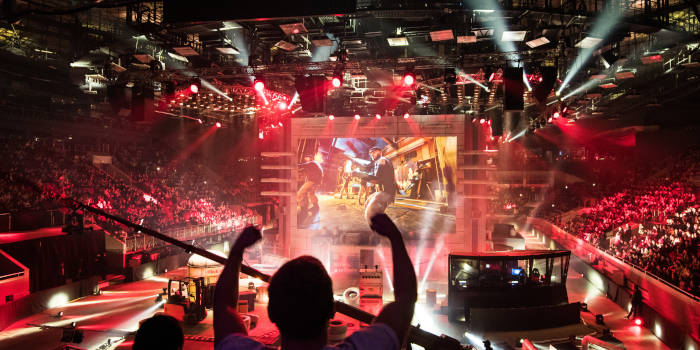RSPH Urges Action to Limit Harmful Loot Boxes Effects

The RSPH has asked regulators, educators and video game makers to pool their efforts and focus on educating underage gamers on how loot boxes could lead to gambling addiction.
RSPH Calls for Alternative Approach to Loot Boxes
The Royal Society for Public Health (RSPH) has become the latest body to call for tighter regulation of loot boxes. Specifically, the RSPH has urged the video industry to alter the content it releases for audience younger than 18 years of age.
The RSPH has equally appealed to video game developers to start monitoring loot boxes sales figures, similar to how sportsbooks and casinos monitor behavior to identify overspending and reckless gaming behavior.
Equally, the society has called for developers to try and educate players on the potential downsides of overspending on loot boxes and the risks that carried in relation to developing gambling addiction.
Our Chief Executive, @ShirleyCramer28, on our new report #SkinsInTheGame.
— RSPH (@R_S_P_H) December 20, 2019
Read our report, including it's findings and recommendations here 👉 https://t.co/rNmcHyxZfD pic.twitter.com/xNC1ZteFha
Epic Games, Fortnite’s developing company, has already taken a step in the right direction by introducing more transparent rules for its loot boxes. The company completely ditched loot boxes in another flagship title, Rocket League.
Loot Boxes on the School Curriculum
The RSPH firmly believes that the issue of problem gambling should be part of the Health Education Curriculum. Experts should focus on working with parents and students to help identify problem gambling behavior and nip it in the bud.
Some 550,000 children in the United Kingdom are believed to gamble on regular basis. RSPH Chief Executive Shirley Cramer had this to say:
Young people have told us that gambling and gambling-like activity are slowly but surely polluting hobbies and past-times that have traditionally been beneficial to their wellbeing.
According to GambleAware findings some 90% of all respondents aged between 11 and 24 said that loot boxes were a natural part of video games and so was buying them. Estimated 67% said participating in skin betting contests is also normal.
Yet, skin betting has been the one activity to be prosecuted as a facilitator of underage gambling. Valve, the company behind blockbusters such as Counter-Strike and Dota 2, faced a lawsuit back in 2016 for allegedly aiding underage gambling activities.
The accusations weren’t true, but it prompted Valve to start monitoring how skins are used by third-parties. Valve quickly moved to issue cease-and-desist letters.
The Youngest More Likely to Purchase Loot Boxes
The survey also revealed that individuals aged between 11 and 14 years old were far more likely to snap up loot boxes as opposed to individuals aged 18 and older. Apparently, loot boxes held better appeal amongst youngsters.
The group also didn’t see loot boxes as a form of gambling. Yet, Cramer has said that both respondents and the RSPH acknowledge the gambling-like mechanics introduced by loot boxes:
“The rise of loot boxes and skin betting have seen young people introduced to the same mechanisms that underpin gambling, through an industry that operates unchecked and unregulated on the back alleys of the internet, which young people can access from their bedrooms.”
Cramer encouraged action from competent authorities, arguing that for a solution to be found, a combination of measures would be needed. Regulators and educatory bodies would need to come together, she continued.
She also said that the RSPH wasn’t on a quest to stamp out all gambling. Rather, Cramer just wanted what she believed many of the young respondents had already stated – to be able to recognize gambling when it introduced to them and guarantee the well-being of more impressionable groups of society.
Stoyan holds over 8 years of esports and gambling writing experience under his belt and is specifically knowledgeable about developments within the online scene. He is a great asset to the GamblingNews.com team with his niche expertise and continual focus on providing our readers with articles that have a unique spin which differentiates us from the rest.



